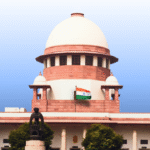Motor Vehicles Act, 1988 – Renewal of Stage Carriage Permit – Curtailment of Route – Nationalisation Scheme – Counter-signature – Maintainability of Application – Judicial Review – Alternate Remedy.
(2025) 7 KCD 181 : 2025 KER 53342
IN THE HIGH COURT OF KERALA
THE HONOURABLE MR.JUSTICE MOHAMMED NIAS C.P.
WP(C).19863 OF 2025; July 18, 2025
Keywords: Stage carriage permit, renewal, curtailed route, inter-regional permit, counter-signature, nationalisation scheme, Motor Vehicles Act (Sections 72, 81(4), 103(2)), writ petition, alternative remedy, judicial review.
A petitioner applied for the renewal of a stage carriage permit on a curtailed route (Palakkad-Pattambi) after the original inter-regional permit (Guruvayur-Palakkad) granted in 2006 for five years could not be fully operationalized due to the RTA Thrissur’s refusal of counter-signature. This refusal stemmed from a portion of the original route falling under an approved nationalisation scheme. The Regional Transport Authority (RTA), Palakkad, repeatedly rejected the renewal application, primarily on grounds of maintainability, arguing that a valid permit for the entire route was required, or that no proper application for route modification was filed, and that the vehicle was detached from the permit.
Held:
Maintainability of Writ Petition: The High Court found the writ petition maintainable, rejecting the contention of an alternate efficacious remedy. It emphasized that judicial review is warranted in cases of perceived arbitrariness, especially after a series of binding directions from courts and tribunals. The power to issue writs under Article 226 is plenary, and the case involved an interpretation of the Motor Vehicles Act rather than disputed facts.
Validity of Permit without Counter-signature: Citing previous Supreme Court judgments, the Court clarified that an inter-regional permit granted by a competent authority is valid for the region over which the granting authority has jurisdiction, even if it is not countersigned by another Regional Transport Authority for the entire route. The permit only becomes valid for the entire route upon counter-signature. Therefore, the permit was valid for operation within the Palakkad district (Palakkad-Pattambi route).
Power to Grant/Renew Permit on Curtailed Route:
The curtailment of the route was necessitated by the “operation of law” (the nationalisation scheme) rather than the petitioner’s voluntary choice.
Section 103(2) of the Motor Vehicles Act specifically empowers the State Transport Authority or Regional Transport Authority to “modify the terms of any existing permit so as to… curtail the area or route covered by the permit in so far as such permit relates to the notified area or notified route” for the purpose of giving effect to an approved scheme.
Section 72 of the Act also allows for the grant or renewal of a permit with such modifications as the authority deems fit, which includes the power to grant a permit on a curtailed or shorter route.
Crucially, the Regional Transport Authority (Palakkad) itself had previously directed the petitioner to apply for renewal on the curtailed route (Palakkad-Pattambi). This directive, along with judgments from the State Transport Appellate Tribunal (STAT) and the High Court directing reconsideration of the renewal on the modified route, had attained finality.
Objections to Renewal: The Court rejected the arguments that the petitioner’s application was not maintainable, that there was no vehicle attached to the permit (noting the permit’s expiry and the time given by law to produce a vehicle for renewal), or that the petitioner had operated illegally. The authorities had taken no action regarding alleged permit violations during the operational period.
Conclusion: The High Court found the RTA Palakkad’s rejection (Ext.P13) to be illegal and contrary to the provisions of the Act and previous judicial/authority directions. The impugned order was quashed, and the official respondents were directed to reconsider the renewal application for the modified/curtailed route Palakkad-Pattambi within one month from the date of judgment.


